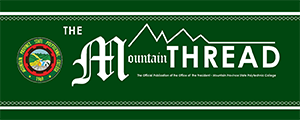We heard this refrain from research conferences and symposia: Research results should be disseminated among the academic community and with the intended beneficiaries. At the onus of shared responsibility comes to the fore the personal stake of the researchers. Should researchers share research results when it could mean depriving them of their own recognition especially when other researchers use the data to make a headstart in publication?
This is a dilemma that the researchers commonly grapple with. They recognize the ethical norm of open-ness in sharing data but at the same time they have to consider their own personal interests, the time, resources and commitment they invested to conclude their research.
This scenario figures out preponderantly in academic institutions where decisions have to be made by researchers because not even the existing codes and guidelines can cover every situation. How we try to interpret and resolve research ethical dilemmas may be compounded by several factors in an “imperfect or stressful environment.” In such an environment, Shamoo and Resnik (2015) say that misconduct oc-curs because various institutional pressures, incentives, and constraints encourage people to commit misconduct, such as pressures to publish or obtain grants or contracts, career ambitions, the pursuit of profit or fame, poor supervision of students and trainees, and poor oversight of researchers.
With every crucial decision making for a course of action are the yardsticks of every ethical challenge: Is it fair, just or responsible? In the above case presented, whether to share or not to share the research data is a limiting choice. Prudently, the main research investigator would have to explore and weigh in other options. On the issue of fairness, he/she may confer with the team, or supervisors to ask for their opinions, and find out the real interest of the other team needing their research data. On the issue of jus-tice, concessions will have to be brokered with the other party to delineate the limitations of shared data and draw up certain intellectual property agreements. On responsibility, so that publication rights will not be compromised, research collaboration can be an alternative, which also fosters professional growth and lends to a more scholarly output.
Even with the gold standards of research conduct set by international and national bodies on research ethics, at the end of the day, it is the researcher who gives full meaning to the probity of research ethics in his/her institution. // Dr. Annie Grail F. Ekid




